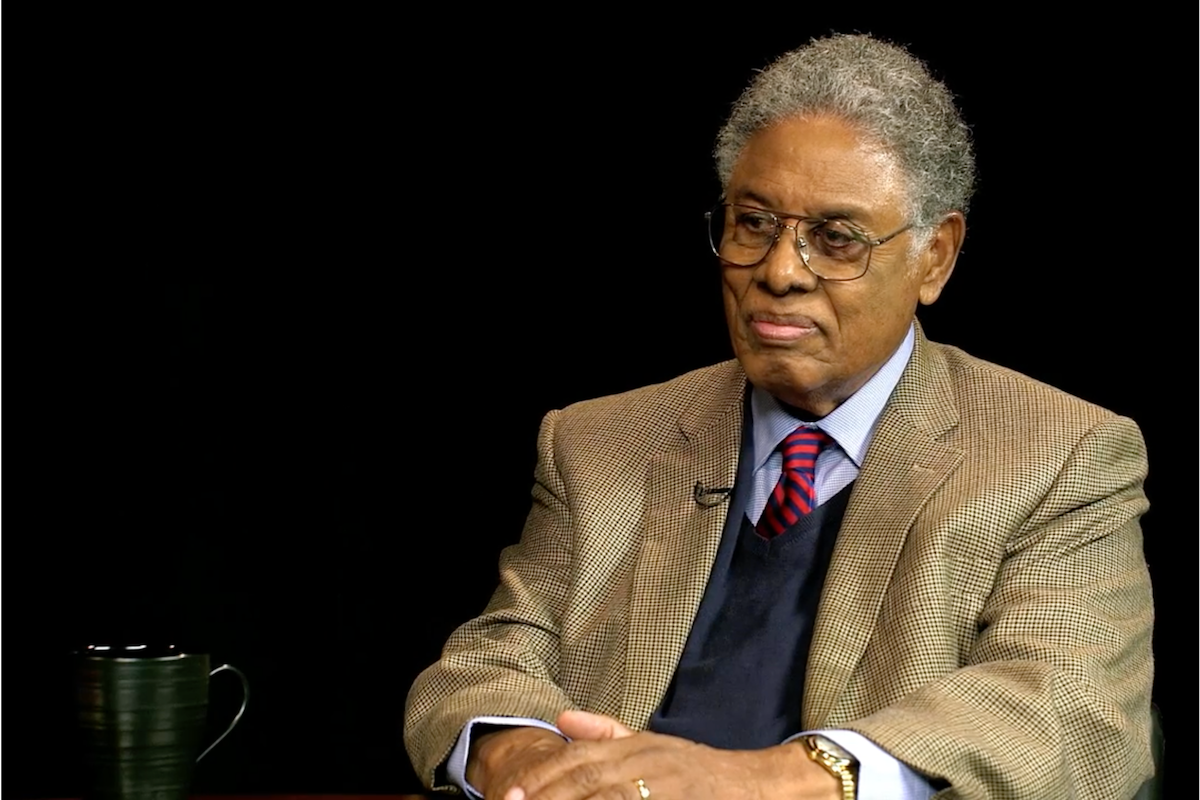California Patriot Profile: Thomas Sowell
Economist and Author at Stanford's Hoover Institution Has Been A Conservative Thought Leader for Well Over Half a Century
From a Harlem tenement to Stanford's Hoover Institution halls, Thomas Sowell's life embodies the triumph of ideas over circumstance. His life has spanned over four decades, providing impetus to arguments on economics, culture, and policy through columns numbering in the thousands and books numbering in the dozens. His rigor and clarity challenge assumptions, yielding a view of human behavior that resonates in California and beyond. Here's why Sowell's voice is heard even today.
A Life Forged in Adversity
Born in 1930 in North Carolina and brought up in Harlem, Sowell experienced poverty and segregation at an early age. Having been orphaned as a teenager, he dropped out of high school to find work, eventually serving in the Marines during the Korean War. Self-educated in large part, he graduated from Harvard, Columbia, and the University of Chicago, where he studied under Milton Friedman. His life trajectory from adversity to intellectual stature informs his distrust of elite solutions and his faith in personal fortitude.
The Hoover Institution Anchor
Since 1980, Sowell has been a senior fellow at Stanford's Hoover Institution, a bastion of rigorous scholarship. From there, in California, he examines policy errors and cultural directions, influencing intellectuals and policymakers. His presence in Hoover has made Palo Alto an unlikely hub of ideas resistant to the state's dominant narratives, offering a counter-narrative to Sacramento's top-down administration. Sowell's oeuvre demonstrates that an individual voice can have a profound influence on minds in a crowded room.
Fertile Pen, Piercing Analysis
With over 40 books and thousands of columns to his credit, Sowell's pen is a gold mine of clarity. Books like Basic Economics distills complex ideas into simple language so that millions can comprehend markets. Wealth, Poverty, and Politics tell us why gaps persist, avoiding simplistic blame. Syndicated columns, which appear in papers like the Los Angeles Times, cover everything from education to race, always anchored in facts. Californians, beset by over-taxation and disparity, find his writings a roadmap to underlying causes.
The Quotable Conservative
Thomas Sowell’s influence extends beyond his scholarship—his words have become touchstones for those seeking clarity in public debate. Here is a small sampling of his short, incisive observations:
“When you want to help people, you tell them the truth. When you want to help yourself, you tell them what they want to hear.”
“The first lesson of economics is scarcity: There is never enough of anything to satisfy all those who want it. The first lesson of politics is to disregard the first lesson of economics.”
“The problem isn’t that Johnny can’t read. The problem isn’t even that Johnny can’t think. The problem is that Johnny doesn’t know what thinking is; he confuses it with feeling.”
“When people get used to preferential treatment, equal treatment seems like discrimination.”
These lines, drawn from Sowell’s columns and books, distill his approach: a relentless focus on truth, a clear-eyed view of economic reality, and a challenge to the emotionalism and groupthink that often dominate policy debates.
Challenging the Orthodoxy
Sowell's strength lies in his unapologetic challenge to prevailing orthodoxy. He critiques affirmative action for potentially harming those it aims to benefit, based on evidence from the California Proposition 209 debate. He discredits centralized planning and speaks to all those frustrated by the sprawl of state regulations. With an emphasis on empiric fact over ideology, Sowell has prompted a generation to rethink welfare, education, and housing policy, even in a leftist state.
A Legacy of Intellectual Courage
95 and very much a giant, Sowell's ideas survive political fashions. His focus on individual effort and market mechanisms offers a formula for getting California out of its crises—homelessness, high housing costs, and school failure—without relying on bloated bureaucracies. While most intellectuals write for fellow intellectuals, he writes for the typical reader. His legacy extends not only to books but to the millions of minds he has freed from unexamined presuppositions.
So, Does It Matter? Now More Than Ever!
Sowell's work remains timely in 2025 as California continues to face financial strain and cultural rifts. His warnings about unintended consequences—seen in proposals such as high-speed rail or rent control—resonate through time. By prioritizing reason over emotion, he empowers readers to navigate a day of polarization. In a state where ideas give way to conformity, Sowell's intellectual courage inspires us that truth, not consensus, builds a better tomorrow.



